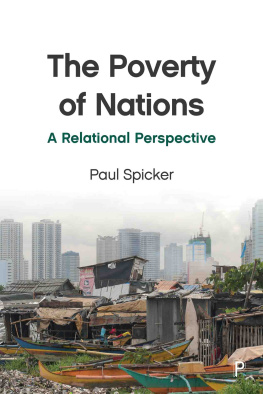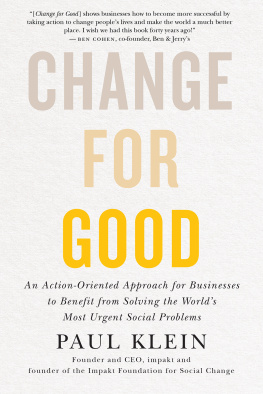ROUTLEDGE LIBRARY EDITIONS:
SOCIAL THEORY
Volume 51
THE PERSONAL AND THE POLITICAL
First published 1979
This edition first published in 2015
by Routledge
2 Park Square, Milton Park, Abingdon, Oxon OX14 4RN
and by Routledge
711 Third Avenue, New York, NY 10017
Routledge is an imprint of the Taylor & Francis Group, an informa business
1979 Paul Halmos
All rights reserved. No part of this book may be reprinted or reproduced or utilised in any form or by any electronic, mechanical, or other means, now known or hereafter invented, including photocopying and recording, or in any information storage or retrieval system, without permission in writing from the publishers.
Trademark notice: Product or corporate names may be trademarks or registered trademarks, and are used only for identification and explanation without intent to infringe.
British Library Cataloguing in Publication Data
A catalogue record for this book is available from the British Library
ISBN: 978-0-415-72731-0 (set)
eISBN: 978-1-315-76997-4 (Set)
ISBN: 978-1-138-78809-1 (Volume 51)
eISBN: 978-1-315-76349-1 (Volume 51)
Publishers Note
The publisher has gone to great lengths to ensure the quality of this reprint but points out that some imperfections in the original copies may be apparent.
Disclaimer
The publisher has made every effort to trace copyright holders and would welcome correspondence from those they have been unable to trace.
Hutchinson & Co (Publishers) Ltd
3 Fitzroy Square, London W 1 P 6JD
London Melbourne Sydney Auckland
Wellington Johannesburg and agencies
throughout the world
First published 1978
Paul Halmos 1978
The paperback edition of this book is sold
subject to the condition that it shall not, by way of trade
or otherwise, be lent, re-sold, hired out or
otherwise circulated in any form of cover or binding other
than that in which it is issued and without a similar
condition including this condition being imposed
on the subsequent purchaser
Set in Monotype Times New Roman
Printed in Great Britain by The Anchor Press Ltd
and bound by Wm Brendon & Son Ltd
both of Tiptree, Essex
ISBN 0 09 132260 x (cased)
0 09 132261 8 (paper)
for Ena
When I was asked to give an account of the way my ideas have developed from my life, I thought that the concept of the boundary might be the fitting symbol for the whole of my personal and intellectual development. At almost every point I have had to stand between alternative possibilities of existence, to be completely at home in neither and to take no definitive stand against either. Since thinking presupposes receptiveness to new possibilities, this position is fruitful for thought; but it is difficult and dangerous in life, which again and again demands decisions and thus the exclusion of alternatives.
PAUL TILLICH, On the Boundary
(London, 1967, p. 13)
Be suspicious of all those, be they in power or still seeking it, who claim absolute certainty about what they propose to do! Conversely: Trust those who evince consciousness of limits of action and of their own limits! Indeed, if the concept of consciousness raising has any merit, we would recommend that it be employed for any enterprise that teaches a consciousness of limits.
PETER BERGER, Pyramids of Sacrifice
(London, 1976, pp. 1567)
Contents
Past centuries saw human problems as the wages of our sins or as the will of God. Since the eighteenth century or so we have seen them as the products of our unjust social orders. We tried to take God out of history and saw in history nought but politics and power. During this century many have tried to take politics out of human problems, treating these problems as matters for psychology, as clinical syndromes or as problems of adjustment to the rules of society. The comfortable bourgeoisie welcomed the respite from the political reappraisals: it saw no reason why the rules of the game should be changed the only assistance man required was with improving his gamesmanship under unchanging rules, with refining his versatility so that he could play a variety of games, and knew which to sit out. During much of this century, at least in the West, social problems have come to be regarded as personal, private and, to some extent, non-political. Though the practices which stemmed from this personalist viewpoint were secular, they were in direct line of descent from the religious quests for personal salvation and the redemption of individual souls. Hence the clinical version of mythology of the soul has had a favourably disposed audience from the start.
But as the century progressed there has been a no less than violent reaction to the personalist escapism. The political offensive against healers, doctors, therapists, clinicians, caseworkers, and others is now conducted on a wide front. From community action HQ to senior and faculty common room, the politicizes charge the personalist ideologists with effete indulgence, with dishonest distraction and, last but not least, with being the instruments of reaction. To the personalists, on the other hand, wholesale solutions never amounted to wholesale therapies and in the personalises heart of hearts the road to nowhere in particular is paved with political intentions.
Today the polarization of these two points of view, with all their excesses, is vividly in our minds, if, that is, we have managed to avoid surrender to either of these two extremes. In reflecting on this polarization we attempt to mitigate the tensions which it creates and try to effect some give and take. We often seek our peace in compromise. Sometimes we dignify this process by calling it a synthesis. Unfortunately the moral and intellectual cost of calling a draw a synthesis has been high. When ideas or values are in conflict, and when they negate each other, both honesty and prudence dictate that we do not bury their differences but learn to live with them and try to make their very incompatibilities a source of creativity. When psychotherapists describe their penetrating intervention as non-directive psychotherapy and when dictators call their rgimes democratic centralism, they are so busy obliterating the contradiction that they overlook having obliterated meaning as well.
This book is about the predicament of those who, in trying to better the condition of man, are caught between deep and private needs on the one hand and grave public demands on the other. That the personal and the political concerns differ, diverge and even conflict need not surprise us; what is surprising is our ability to experience these diverging concerns even if not simultaneously at least in close succession. But some people are not content with this versatility and claim to blend, merge and telescope their personal and political selves. They claim that they effect a synthesis of the personal and the political, whilst all that we can see points either to a simple indulgence in the pan-political or to a total surrender to the personal. The understandable desire to have done with dissonances leads not to their abatement but to a mere self-deceptive denial that dissonances exist.
In this book I endeavour to show that a social concern is not an amalgamation of personal and political concerns but a constant equilibration between the two. The theme of equilibration will recur throughout the progress of this work. Whenever there is an opportunity, I will stress that in the compromise between the two interests it is not the hatchet that gets buried but one of the contestants; what is fancied as a fusion or a synthesis invariably turns out to be blatant one-sidedness. In pleading for the cultivation of a dual vision and a creative inconclusiveness I am certainly not trying to justify a do-nothing fatalism; on the contrary, I am arguing the nobility of a disciplined and vigilant hesitation. I share much of the sociological diagnosis and moral orientation of Anton C. Zijderveld. His thoughtful essay reaches the same conclusion as I do about the necessity of an equilibrationist stance. He writes:








